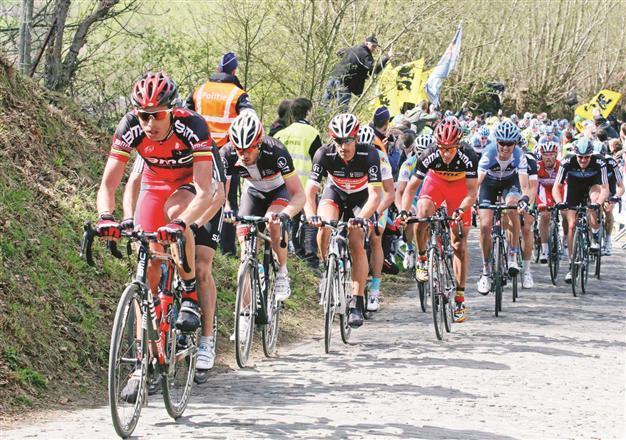Anti-doping expert quits from project
MELBOURNE, Australia - The Associated Press

Cycling has been plagued with doping scandals in recent years and the controversy
surrounding the sport continues with the resignation of Michael Ashenden. REUTERS photo
A leading anti-
doping expert has quit cycling’s biological passport project because of attempts to stop him from speaking publicly about drugs in sport.
Australian scientist Michael Ashenden told The Associated Press yesterday that since the World Anti-Doping Agency-accredited laboratory in Lausanne, Switzerland took over the management of cycling’s anti-doping efforts, new confidentiality clauses had been put in place that he found “unreasonable.” Ashenden was quoted by the BBC on Tuesday as saying he was effectively being silenced by the lab.
“Lausanne is imposing its own ‘Omerta,’” Ashenden was quoted as saying, using the term meaning a mafia code of silence. “There should be nothing to hide, so why stop the experts from talking?”
Ashenden has been involved in the biological passport since the International Cycling Union worked with WADA to launch the project in 2008. He has been an occasionally outspoken member of an expert panel that analyzes cyclists’ blood values for signs of doping.
The Lausanne laboratory took over running the biological passport project this year and insisted on a new confidentiality clause in the experts’ contracts.
New clause “When Lausanne convened the panel of experts, they approached the same group of experts who have been looking after cycling for the last three years, but they inserted into their contract a clause which said we aren’t allowed to discuss anything about our role on the panel now, or even for eight years after we cease being on the panel,” Ashenden said.
Ashenden said he was comfortable being prohibited from disclosing confidential information he obtains through individual passports; “Of course that’s the case. But Lausanne went further than that and said ‘you can’t talk about anything to do with the passports.’ I’ve been looking at these blood results before the APMU was invented, so to prevent me from speaking about that when I’m completely independent of them is just unreasonable.”
